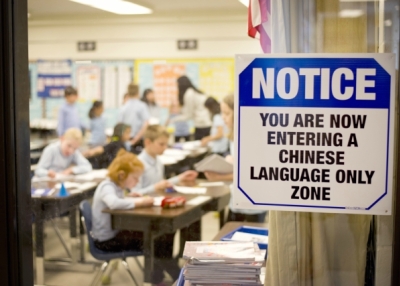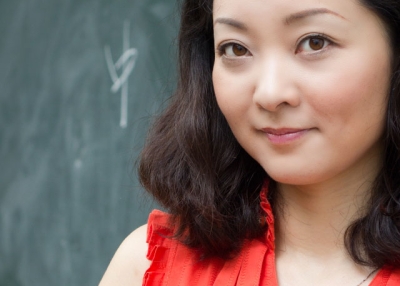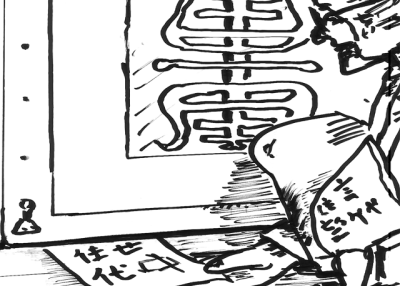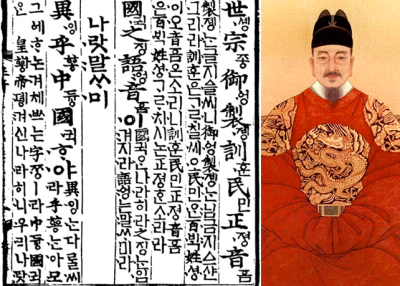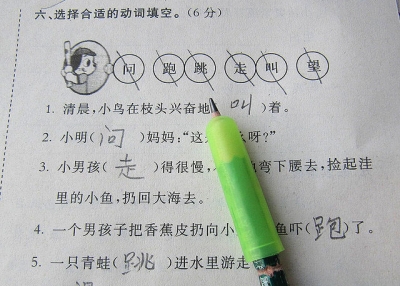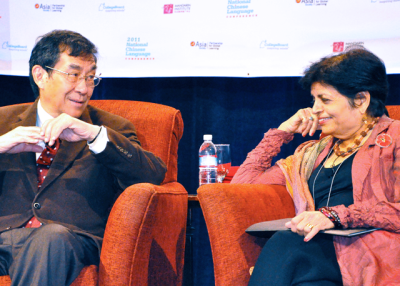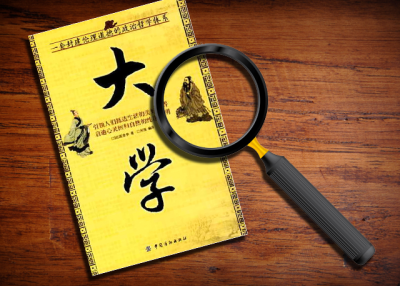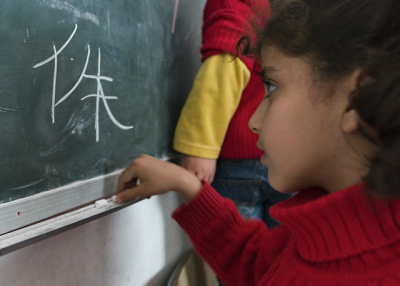Breaking and Entering in the "Chinese Room"

In the debate over artificial intelligence, the philosopher John Searle developed the idea, appropriately enough, of the “Chinese Room” as a metaphor for what happens in computation. The “Chinese Room” is composed of a group of people who know no Chinese sitting in a room. These people are given a rulebook that tells them how to assemble groups of Chinese characters into responses to questions that come in. So the people in the room are handed questions in Chinese (none of which they can understand), but they put together characters based on these rules and give out answers to the questions in what seems to an outside observer to be perfect Chinese.
Searle was using this argument to talk about how even though a system (or computer) may seem to “understand,” in reality all it is doing is manipulating symbols according to rules that it has been given to create the illusion of understanding.
For our students to become truly proficient in the target language, we need to break them free of their own Chinese Rooms, and help them understand not only how the language works (by empowering them to become what I’ve termed “students as linguists”) but also their own learning processes, challenges, and (most importantly of all!) talents.
It seems to me that a good language teacher can get a sense for those talents fairly quickly. I’ve reflected on my own language skills, such as in a 2006 essay in the literary journal AGNI, where I located the origins of my lifelong interest in languages in an obsessive fascination with the accents I discovered on British television. While I grew up in a household that was largely composed of one or more dialects of New York-accented English, hearing the varieties of English spoken on British television opened to me the multiple possibilities of just how rich our language could be.
Listening to the sonorities of Oxbridge, Cockney, and Birmingham accents, and learning how to imitate all of them convincingly, made me both an enthusiastic and fairly competent mimic. This background served me well when I got my first chances to study Spanish and Russian in middle and high school.
My Russian language education was extremely formal and revolved largely around memorizing declensions of nouns and adjectives and perfective and imperfective forms of verbs. I became able to reel them off in convincingly accented Russian, but unfortunately never really understood how the system worked. I remember participating in the New York State Olympiad of Spoken Russian after having studied a couple of years of the language in high school. In stage one, I was on familiar ground, answering questions that I had prepared for and reciting long passages from Russian literature. The face of the teacher who was questioning me shone with satisfaction as I nailed another passage from Pushkin. In stage two, I entered into more basic territory in linguistic terms, but nothing for which I had explicitly prepared. The teacher sitting in front of me was clearly wondering how I had made it this far. He sneered and rolled his eyes as I stumbled and stuttered in my feeble attempts to respond to his questions. I think at the time it was confusing for me to understand how I could be so good at certain aspects of language learning and so poor at others!
My encounter with British accents had prepared me to speak clearly articulated, largely unaccented Russian, but my teachers and textbooks did not prepare me for understanding the subtleties of the Russian noun and verb systems or navigating the give and take of an actual conversation with a Russian speaker! And what those teachers and textbooks had prepared me for even less was how to understand myself as a learner. I don’t think it was obvious to me at the time that I might be a gifted mimic, but not as good at memorizing large lists of vocabulary or intuitively understanding the nuances of grammatical constructions. Had I known and understand those things at the time, I might have stuck with Russian and actually delved much deeper into those works by Dostoevsky, Chekhov, Bulgakov, and others that I cherish so much.
I was lucky to have had the opportunity to learn some Russian, and in subsequent years, although I had abandoned formal study of the language, I began to reapply some of my growing linguistic knowledge to the language I had studied as a child. Since my Russian teacher taught all of the grammar in Russian, using little or no English, I found over time that I was able to plug in the appropriate responses to questions without necessarily understanding those answers or why I was putting them in the form I was putting them.
I became increasingly skilled at manipulating Russian symbols (words), but much less adept at understanding the patterns and nuances that underlay them. This situation reminds me very much of the Chinese Room argument employed in the philosophy of mind.
Considering my students’ talents and how I might break them free of their Chinese Rooms, I think my predictions about their phonological abilities were pretty accurate after just the first day. I could hear almost immediately which students had an “ear for the language” and were able to hear the distinctive sounds of the language, rather than just speaking in approximations of English sounds.
The trick here is not to take those as final pronouncements on a student’s abilities, but good information the teacher can use to help support and individualize the approach to learning for that student. We don’t want to take students out of the Chinese Room and put them in another box, but constantly reevaluate our understanding of students’ capacities, and constantly challenge them to go beyond.
